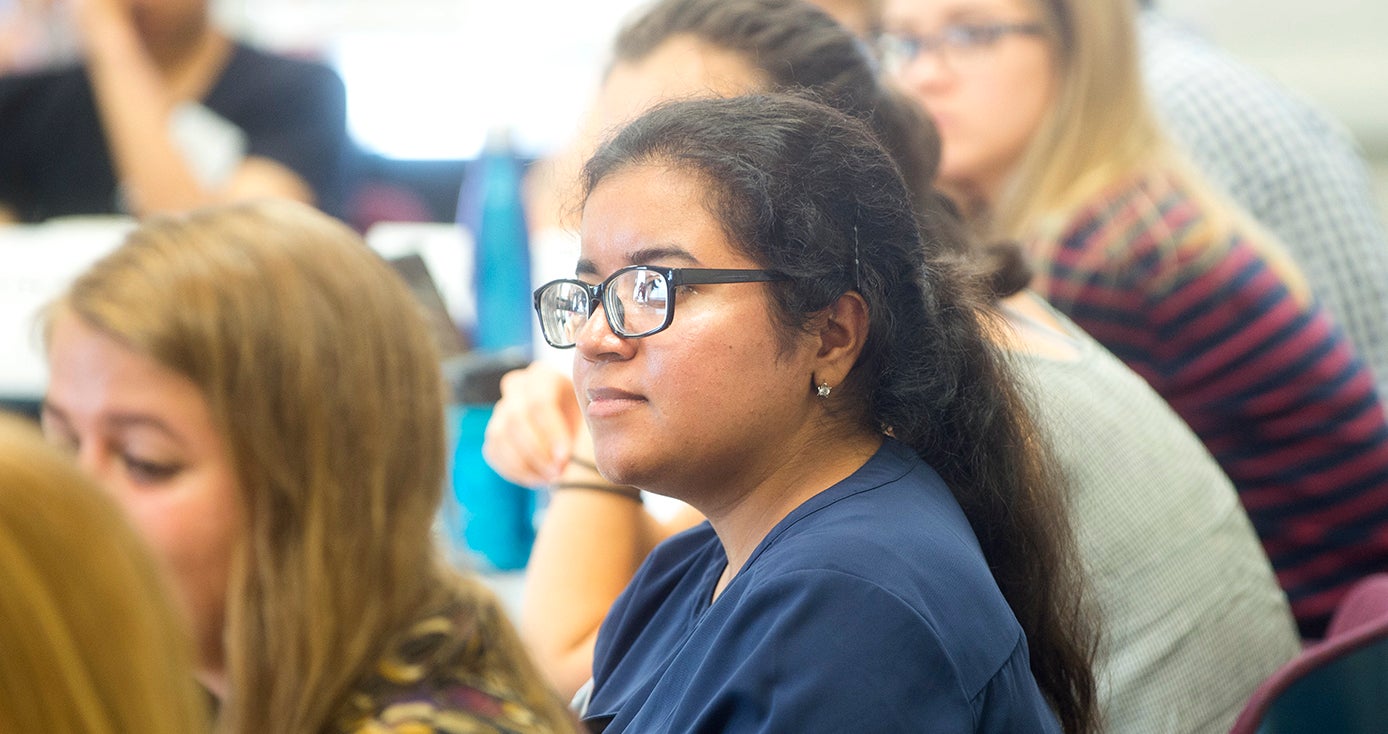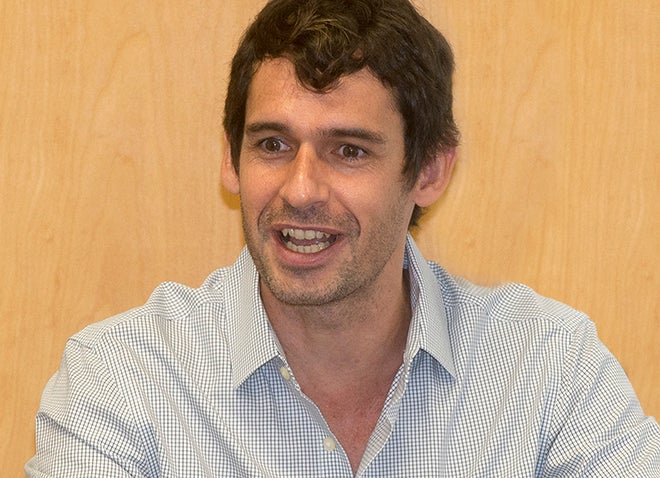
Subscribe to Pittwire Today
Get the most interesting and important stories from the University of Pittsburgh.Philosophy of Science Summer Program on Mission to Bring Diversity Into the Field
What concerns Pitt philosophy student Margaret Farrell most about her chosen field is the sharp drop in female representation between the undergraduate and professional spheres.
“That’s a little ominous for me as a woman trying to get to that level,” said Farrell, who plans to graduate in 2018 with a bachelor’s degree in the history and philosophy of science and continue her studies in graduate school.
Farrell, who received a national scholarship for her work in evolutionary biology earlier this year, was one of 15 undergraduates chosen from a pool of 111 applicants for Pitt’s Center for Philosophy of Science inaugural Pittsburgh Summer Program in philosophy of science, which was held in July. Applications for the seminar were open only to North American undergraduates, particularly students with disabilities, underrepresented racial and ethnic backgrounds, women and LGBTQIA+ students.
Increasing diversity in the field is vital in order to build and maintain public trust of the scientific process, said Pitt's Edouard Machery, director of the center. “The philosophy of science should strive to reflect American diversity as much as possible.”
By the Numbers
Representation in the first group of Pittsburgh Summer Program in Philosophy of Science students:
- 60 percent female
- 13 U.S. cities (plus Toronto)
- Nine states
- 15 college majors
- Two Ivy League schools
- Four private colleges
- Seven public universities
- Six racial/ethnic backgrounds
Check out more on the program, including faculty bios, detailed course descriptions and the full program schedule.
Women and members of minority groups are published less frequently than men and white researchers in philosophy journals, for example, yet publishing is often essential for getting hired to tenured faculty positions.
Addressing this imbalance through programs like Pitt's will take a while. “The larger goal is to change the demographics,” Machery said. “It’s a long game.”
Nevertheless, in his first year as director, he said that the Center for Philosophy of Science, with its global connections and faculty affiliations in internationally recognized philosophy and history and philosophy of science departments, offered “an opportunity for Pitt to shine.”
The summer program received its funding from the dean’s office of the Kenneth P. Dietrich School of Arts and Sciences and the Office of the Provost, which covered expenses for the week — from food and housing to flights — for each student. The program, which was part of the 2016–17 Year of Diversity at Pitt, will be funded by the provost’s office for the next five summers.
Farrell, one of three Pitt students on the roster, said she was proud to be part of a program that’s trying to level the playing field, adding that she left the seminar “a lot more confident to develop myself as an individual philosopher, rather than trying to sound like someone else. This will be really important when I’m in graduate school trying to produce original work.”
The five-day seminar featured nine graduate-level lectures with titles including Race and Medicine, Why is Biology Different from Physics? and Gene Therapy and Enhancement: Ethical Issues and Opportunities.
Talks were given by a diverse panel of experts from Pitt, Carnegie Mellon University (whose philosophy department has close ties with Pitt’s center) and two outside lecturers: Quayshawn Spencer of the University of Pennsylvania and Serife Tekin of Daemen College in Amherst, New York — the latter a postdoctoral fellow with the center from 2012–13.
Other activities included a trip to Hillman Library’s Special Collections to view the Archives of Scientific Philosophy, a crash course by Machery in applying to graduate programs and a farewell reception.
Perks included unfettered access to faculty during and after the conference.
Birdie Kushner, a philosophy major at Montana State University, approached Tekin in the break room after the assistant professor’s lecture on psychiatry.
“That was the best talk I’ve ever been to in my life,” she said, smiling. “I’d love to discuss more about it with you in the future.”
“Of course,” Tekin replied, readily offering her email address.
For Tekin, it was one of the reasons she volunteered to teach a slot on the syllabus.
“The teachers and mentors who encouraged me, who I continue to admire and work with now as a professor … their support meant so much to me earlier on,” said Tekin, a native of Turkey, of her fellowship at Pitt. “There aren’t many women in philosophy,” especially those from other countries whose first language isn’t English, she said.
“I was honored and excited to be asked to pay it forward.”
Program participant Alejandro Navas, whose grandparents moved to Florida from Puerto Rico, said that growing up, most of his family knew little of science and less about philosophy.
“When I began studying natural science” at the University of South Florida, the senior said, “I wanted to explicitly understand all of its fundamental details, how we come to know about the scientific laws and principles I was learning in the first place.” When a favorite professor recommended Pitt's seminar, he jumped at the opportunity.
Science and philosophy are both about asking questions, Navas said; diversity should be the cornerstone of each — including where the two intersect. “In particular, groups who may be disadvantaged by a theory or argument ought to be present in its evaluation.”
Farrell echoed his sentiments.
“I think we’re doing something wrong if we are systemically or socially reserving knowledge and learning for certain demographic groups,” she said. “Philosophy thrives when it has a variety of perspectives to work with.”



